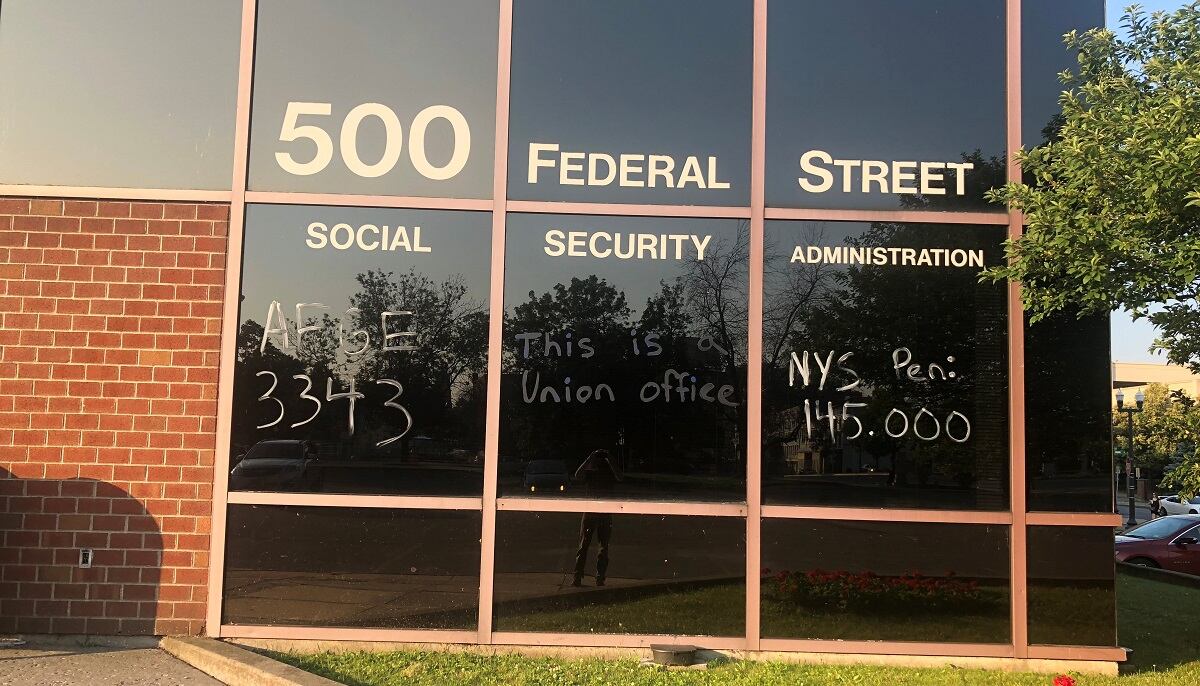A central and controversial component of the Trump administration’s approach to workforce management was formally introduced Sept. 17, as the Office of Personnel Management issued a proposed rule in the federal register that encourages agencies to enact new employee probation and expedites the firing process for poor performers.
The proposed rule, which is based on President Donald Trump’s stated desire to remove inadequate performers in the federal workforce and his series of May 2018 executive orders targeting unions and the workforce, would streamline the required steps for firing or disciplining an employee determined to not be meeting standards or misbehaving in some form.
Under the new rule, agencies would not be allowed to offer additional periods for an underperforming employee to improve their performance, beyond the initial 30-day “opportunity to demonstrate acceptable performance” required by statute.
RELATED

The rule would also more clearly define how to deal with supervisors that have been found to have retaliated against whistleblowers; encourages managers to think independently about what kinds of adverse actions are suitable for addressing employee behavior; and prevents agencies from erasing, removing, altering or withholding information from an employee’s personnel file as part of a settlement or agreement.
“This new requirement is intended to promote the high standards of integrity and accountability within the federal workforce by requiring agencies to maintain personnel records that reflect complete information, and not to alter the information contained in those records in connection with a formal or informal complaint or adverse action,” the rule states.
“It is further intended to ensure that those records are preserved so that agencies can make appropriate and informed decisions regarding an employee’s qualification, fitness and suitability as applicable to future employment.”
Such a prohibition would not apply to correcting inaccuracies or illegal actions taken on an employee’s record.
Meanwhile, the proposed rule notes that the same sort of punishment may not be suitable for every employee, language which the American Federation of Government Employees warned is an “open door for discrimination and retaliation.”
“In addition, the proposed rule at § 752.403 adds paragraph (f) which states that a suspension or a reduction in pay or grade should not be a substitute for removal in circumstances in which removal would be appropriate,” the rule states.
“Agencies should not require that an employee have previously been suspended or reduced in pay or grade before a proposing official may propose removal, except as may be appropriate under applicable facts.”
The rule would also create a stricter process for dealing with managers that take illegal action against the employees they are responsible for.
“Specifically, for the first incident of a prohibited personnel action, an agency is required to propose the penalty at a level no less than a 3-day suspension. Further, the agency may propose an additional action, including a reduction in grade or pay. For the second incident of a prohibited personnel action, an agency is required to propose that the supervisor be removed,” the rule states.
“Under this subpart, supervisors against whom an action is proposed are entitled to no more than 14 days to answer after receipt of the proposal notice. At the conclusion of the 14-day reply period, the agency shall carry out the proposed action if the supervisor fails to provide evidence or provides evidence that the head of the agency deems insufficient.”
For employees just entering government service, the rule could cause them to be more likely to be placed in a probationary period that requires an affirmative determination of satisfactory performance by a supervisor to escape.
“A probationary period is one effective tool to evaluate a candidate's potential to be an asset to an agency before the candidate's appointment becomes final,” the rule states.
“Therefore, probationary periods, as the final step in the hiring process of new employees, should be used to the greatest extent possible to assess how well they are performing the duties of their jobs; and instances of poor performance and misconduct should be dealt with promptly.”
Federal employees on a probationary period are not entitled to the same rights of appeal as other employees, should they be fired or receive some other form of adverse action.
Members of Congress and employee unions have warned that extended probationary periods can work to silence whistleblowers by making employees too scared of punishment to risk speaking out.
Trump administration officials have made no secret of their desire to “drain the swamp” of federal employees and have bemoaned how difficult it currently is to fire career employees.
“These proposed regulations encourage management by fear and intimidation and assume that managers are incapable of working with employees to help them improve their performance. If these rules go into effect, they will greenlight arbitrary and discriminatory discipline against employees who will have little recourse to challenge poor or politically corrupt management,” AFGE National President J. David Cox Sr. said in a statement.
Comments on the proposed rule may be submitted to regulations.gov until Oct. 17.
Jessie Bur covers federal IT and management.





